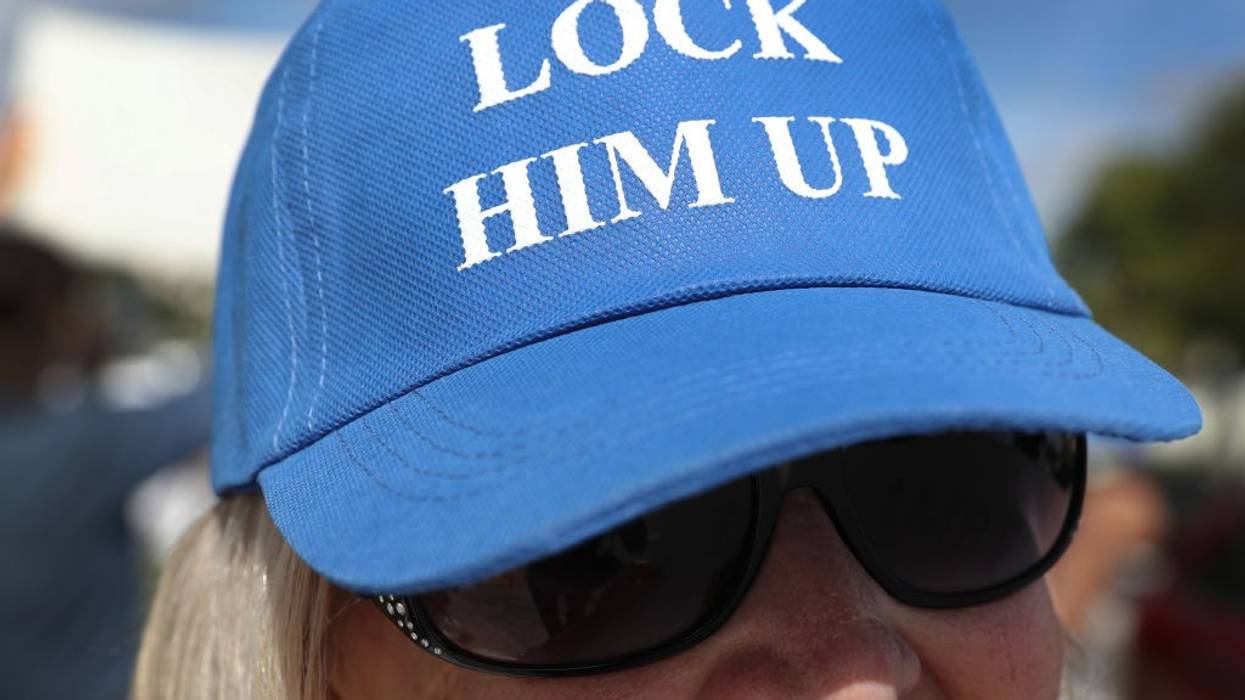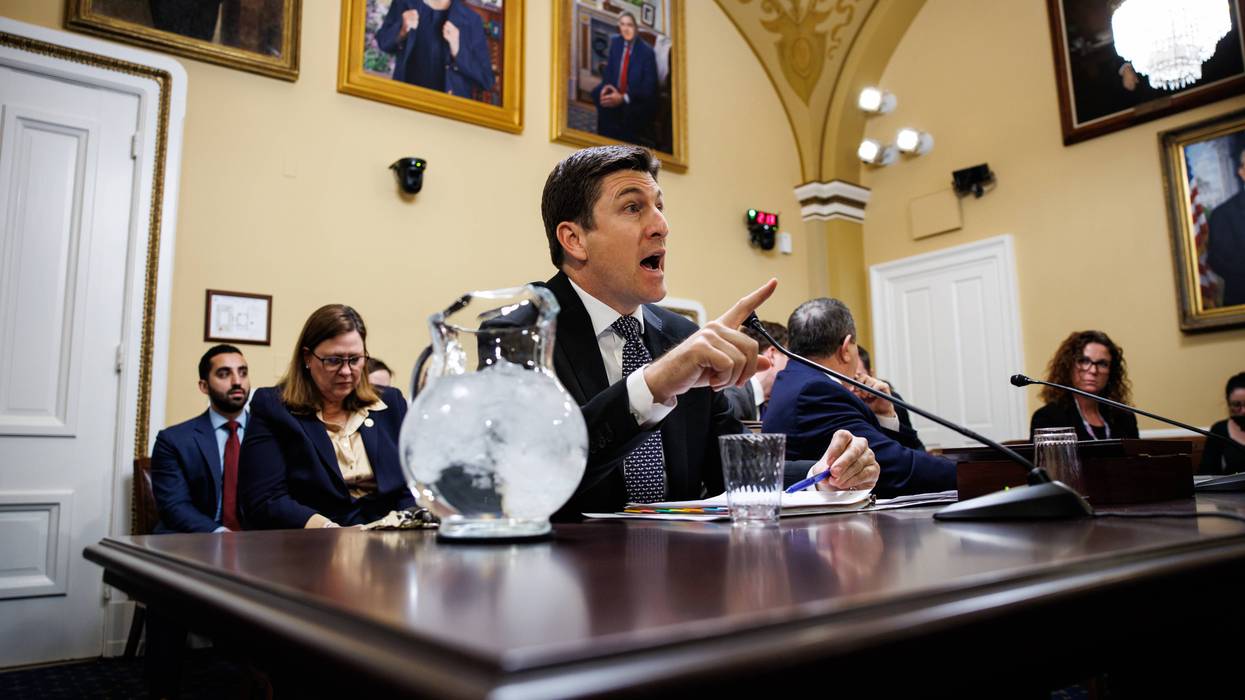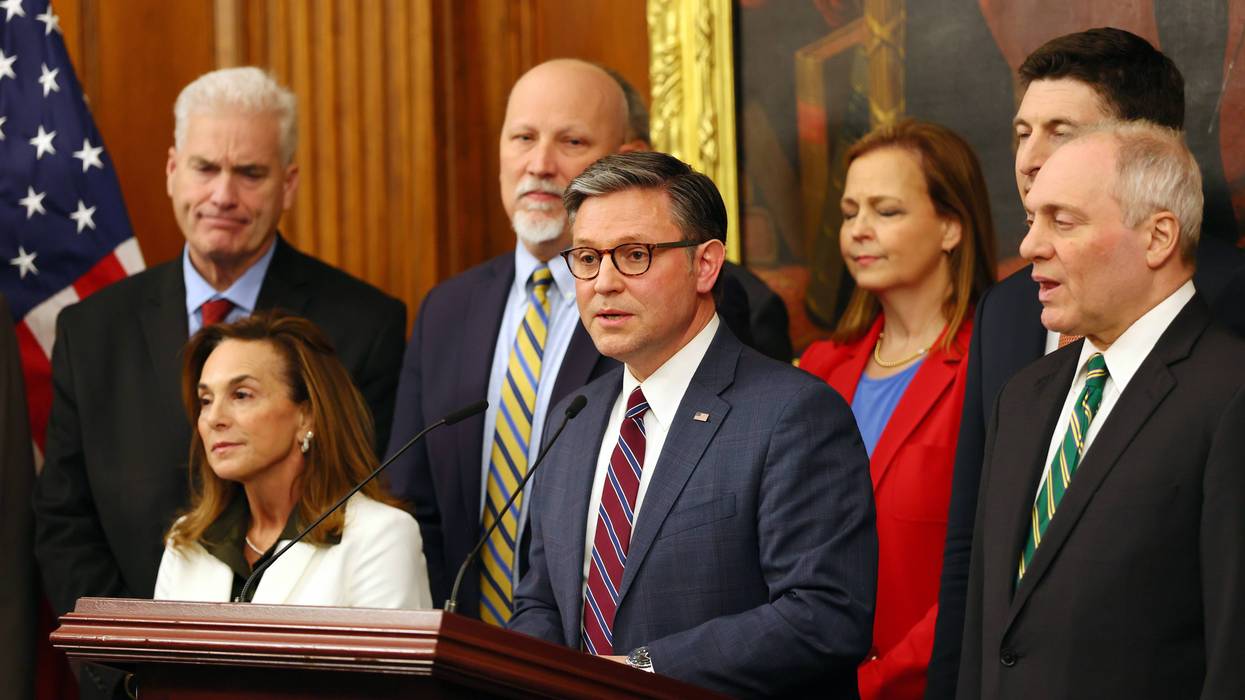Effectively, the bill would require Americans to produce a passport or birth certificate to register and thus to vote. Brennan Center research shows that 21 million people lack ready access to these documents. Half of all Americans don’t have a passport, for example. and millions of married women who have changed their names might need to jump through extra hoops to vote.
With passage in the House (not for the first time), it will be up to senators to block it. Senate Minority Leader Chuck Schumer (D-NY) declared it “dead on arrival.” But this time around, a mobilized outside drive is pushing lawmakers to restrict voting. “It must be done or democracy is dead,” instructed Elon Musk. The SAVE Act will not expire quietly, surrounded by loved ones. It’s on all of us to stand up and speak out, once again.
Each time Trump declares that his goal is to “nationalize” the election—not for the greater good, but for his own political interests—the stakes become clearer.
And now we see how it fits into the broader strategy.
In recent days, Trump has repeatedly demanded that Republicans “nationalize” the elections on behalf of his political party. Each time his aides try to clean up his remarks, he doubles down. “A state is an agent for the federal government in elections,” he wrongly insisted.
Constitutionally, that’s upside-down land. The Constitution is unambiguous: States run elections. Presidents have no role.
Congress, appropriately, can enact national legislation. It should use that power to pass national standards to protect the freedom to vote, not restrict it.
Then there’s the appalling abuse of federal law enforcement. We still do not know why Kash Patel’s FBI raided election offices in Fulton County, Georgia nearly two weeks ago. A judge has ordered that the underlying legal papers, secret until now, be released. ProPublica reports the raid may be linked to agitation by a “conservative researcher” who has peddled discredited conspiracy theories.
Intelligence chief-gadfly Tulsi Gabbard showed up at the Atlanta raid. FOMO? Amid Justice Department ducking and a denial by Trump, Gabbard wrote to Congress that in fact the president ordered her to go even though her office plays no part in elections. Now it turns out that Gabbard last year obtained voting machines in Puerto Rico. And Trump’s allies in 2020 claimed that Venezuela’s Hugo Chavez, long dead, had masterminded a plot.
This is comic opera stuff. But it’s deadly serious, too—certainly for the public servants in Fulton County. It all aims to send a message to intimidate election officials around the country. If you preside over an election and we don’t like the result, we may come after you.
Steve Bannon, the Trump strategist who served prison time for defying a congressional subpoena, declared on Tuesday, “We’re going to have ICE surround the polls come November. We’re not going to sit here and allow you to steal the country again.” When we see how politicized and aggressive immigration forces have become, that threat becomes more than a podcaster’s bombast.
Here, the law is clear: That would be a federal crime. My colleague Sean Morales-Doyle explains: “Can the president send troops or ICE agents to polling places? No—both federal and state laws explicitly prohibit the federal government from carrying out these implied threats.” It’s a federal crime to intimidate voters, too.
In coming months, if we see abuses of power like this, what can we all do to ensure that voters have their voice?
So far, we and others have staved off Trump’s worst impulses. After Trump signed an executive order last year purporting to unilaterally rewrite election rules, we sued the administration, and we won. And as the Trump administration continues to sue states for sensitive voter information, courts in California, Michigan, and Oregon have reaffirmed states’ right to refuse.
State and local governments, too, must be ready to act to protect the polls.
And voters will need to know that, despite all the noise and drama, we can make sure the 2026 elections are free, fair, secure, and, yes, uneventful. It may require voting early or by mail, for example.
In an election year, voting rights advocates often ponder whether pointing to threats risks demobilizing citizens. At some point, warning about voter suppression can accidentally dampen participation.
Not this year, it seems. Each time Trump declares that his goal is to “nationalize” the election—not for the greater good, but for his own political interests—the stakes become clearer. When he wrongly insists American elections are “rigged,” as he did over the weekend, it’s more than bluster. He’s saying the quiet part out loud.
In 2026, the right to vote will demand a fight to vote.




